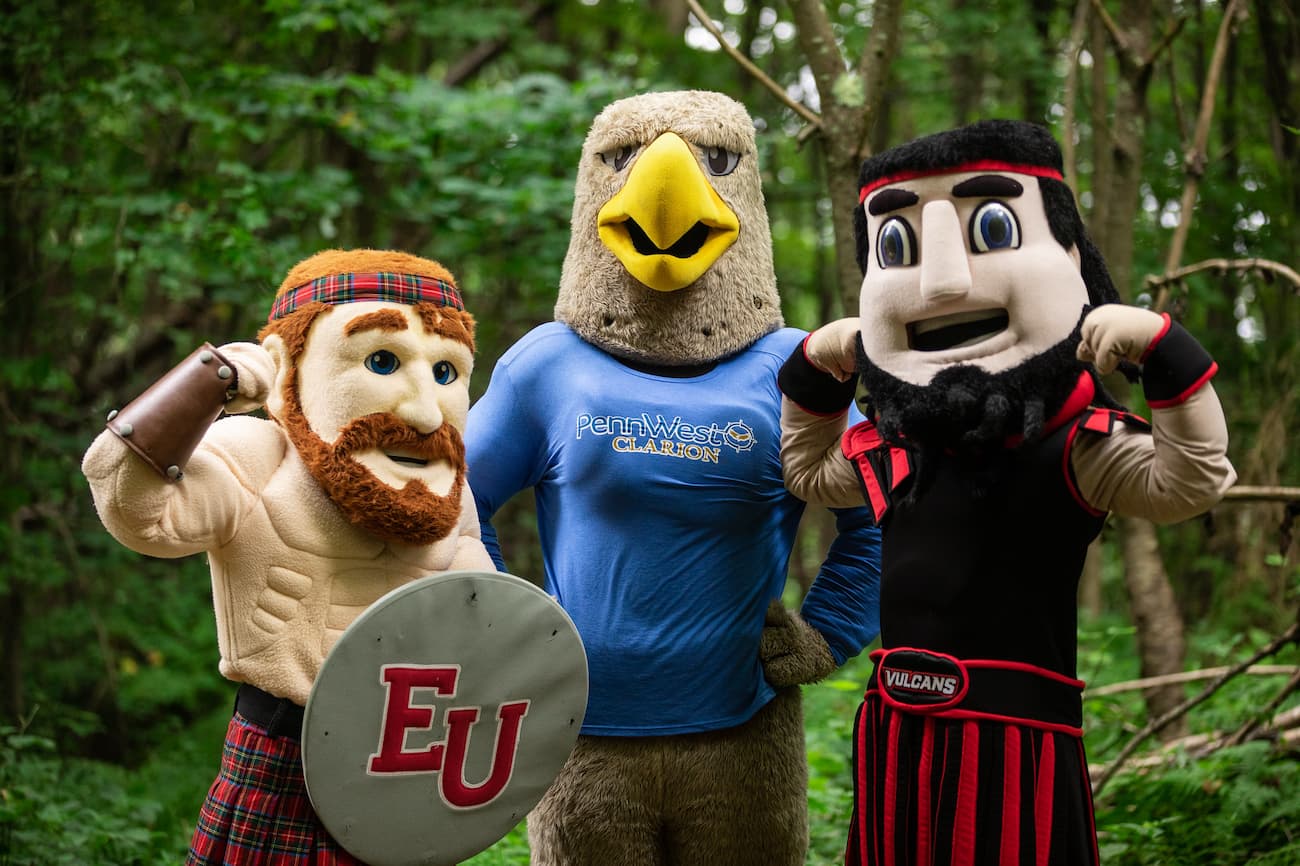Uh-oh, looks like this page is MIA!
No worries, our trusty PennWest mascots are on the case. They’re experts at finding the right path, and they’re here to help guide you back to where you need to be.
At PennWest, we know that even the best journeys have their bumps in the road. But with the right support, there’s no obstacle we can’t overcome together.

Where would you like to go next?